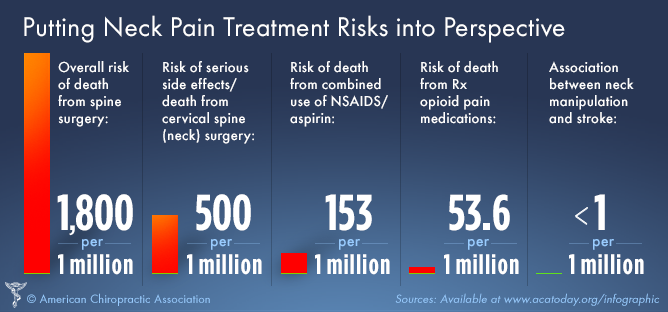The Role Of Nourishment In Neck And Back Pain Management: Foods To Eat And Avoid
The Role Of Nourishment In Neck And Back Pain Management: Foods To Eat And Avoid
Blog Article
Short Article By-Bond Lockhart
When it involves handling your pain in the back, the food options you make can substantially impact just how you really feel every day. Visualize being able to reduce your pain merely by readjusting what you eat. By understanding the function of nourishment in pain in the back administration and knowing which foods to integrate or avoid, you can take positive actions in the direction of a healthier and more comfortable lifestyle. The link in between nourishment and back health and wellness is more profound than you may realize-- allow's explore how specific foods can either soothe or aggravate your neck and back pain.
Relevance of Nutrition in Pain In The Back
Nourishment plays an essential function in managing back pain. Your diet regimen can dramatically impact swelling degrees and general pain levels in your back. Consuming a well balanced diet regimen rich in nutrients like vitamins D and K, calcium, magnesium, and omega-3 fatty acids can help in reducing swelling and enhance bones, which are crucial for back wellness.
In addition, keeping a healthy and balanced weight with appropriate nutrition can reduce tension on your back, minimizing the threat of pain in the back.
Moreover, particular nutrients like antioxidants located in vegetables and fruits can assist combat oxidative anxiety and advertise healing in the body, consisting of the back muscular tissues and back.
On the other hand, taking in extreme amounts of processed foods, sugary beverages, and harmful fats can add to inflammation and weight gain, worsening pain in the back.
Foods to Eat for Back Wellness
To support a healthy and balanced back, incorporating nutrient-rich foods right into your day-to-day dishes is essential. Including foods high in anti-oxidants like berries, spinach, and kale can help in reducing swelling in your back, alleviating discomfort and discomfort. Omega-3 fatty acids located in fatty fish such as salmon and mackerel have anti-inflammatory residential properties that can benefit your back wellness.
Furthermore, consuming pain across lower back and seeds like almonds, walnuts, and chia seeds offers crucial nutrients like magnesium and vitamin E, which support muscle mass function and reduce oxidative stress and anxiety. Integrating lean proteins such as poultry, turkey, and tofu can assist in muscle mass fixing and maintenance, advertising a strong back.
Do not fail to remember to consist of chiropractor bakersfield or fortified plant-based choices for calcium to sustain bone health and wellness. just click for source but not least, hydrate with lots of water to keep your back discs moisturized and operating optimally. By consisting of these nutrient-dense foods in your diet, you can nourish your back and assistance overall back health.
Foods to Prevent for Back Pain
Select avoiding refined foods high in sugarcoated and trans fats when looking for remedy for pain in the back. These types of foods can contribute to inflammation in the body, which might worsen pain in the back. Say no to sweet treats like candy, breads, and sugary beverages, in addition to convenience food items like hamburgers, fries, and fried chicken that are typically loaded with trans fats.
Additionally, steer clear of foods consisting of high degrees of refined carbs, such as white bread, pasta, and breads, as they can increase blood glucose levels and potentially worsen inflammation in the body.
It's also smart to limit your intake of foods high in saturated fats, like red meat and full-fat milk products, as they can contribute to inflammation. Processed foods like deli meats, chips, and packaged snacks are often high in saturated fats and should be consumed in small amounts.
Conclusion
Finally, focusing on your diet and making smart food selections can have a significant effect on managing pain in the back. By incorporating nutrient-rich foods like berries, fatty fish, nuts, and lean healthy proteins, and staying clear of processed and sugary products, you can help reduce inflammation and support in general back health and wellness. Keep in mind, what you consume plays a critical role in exactly how you feel, so ensure to prioritize your nutrition for a healthier back.
